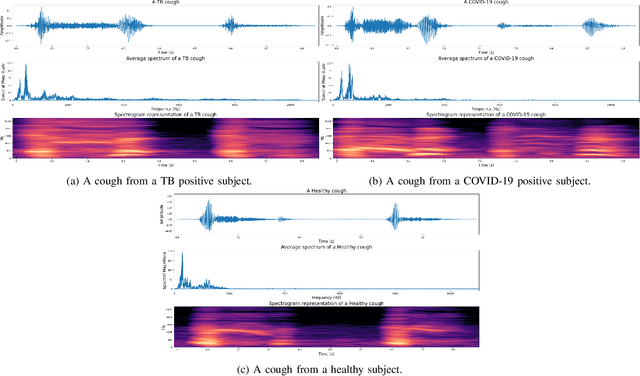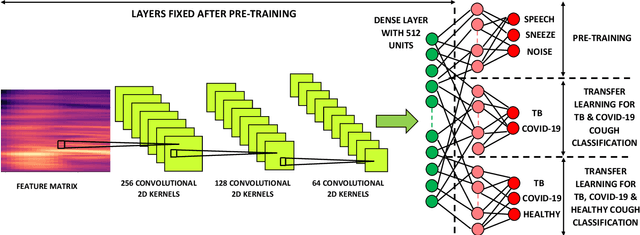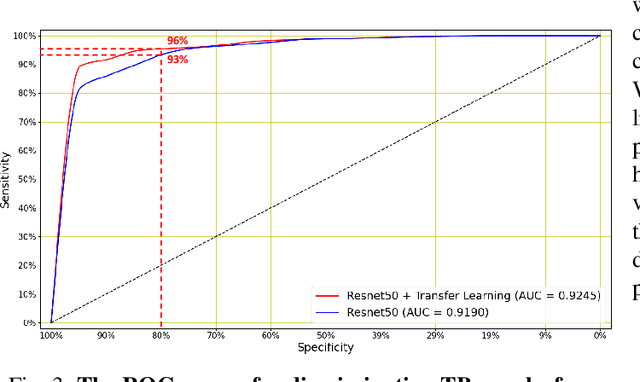Automatic Tuberculosis and COVID-19 cough classification using deep learning
Paper and Code
May 11, 2022



We present a deep learning based automatic cough classifier which can discriminate tuberculosis (TB) coughs from COVID-19 coughs and healthy coughs. Both TB and COVID-19 are respiratory disease, have cough as a predominant symptom and claim thousands of lives each year. The cough audio recordings were collected at both indoor and outdoor settings and also uploaded using smartphones from subjects around the globe, thus contain various levels of noise. This cough data include 1.68 hours of TB coughs, 18.54 minutes of COVID-19 coughs and 1.69 hours of healthy coughs from 47 TB patients, 229 COVID-19 patients and 1498 healthy patients and were used to train and evaluate a CNN, LSTM and Resnet50. These three deep architectures were also pre-trained on 2.14 hours of sneeze, 2.91 hours of speech and 2.79 hours of noise for improved performance. The class-imbalance in our dataset was addressed by using SMOTE data balancing technique and using performance metrics such as F1-score and AUC. Our study shows that the highest F1-scores of 0.9259 and 0.8631 have been achieved from a pre-trained Resnet50 for two-class (TB vs COVID-19) and three-class (TB vs COVID-19 vs healthy) cough classification tasks, respectively. The application of deep transfer learning has improved the classifiers' performance and makes them more robust as they generalise better over the cross-validation folds. Their performances exceed the TB triage test requirements set by the world health organisation (WHO). The features producing the best performance contain higher order of MFCCs suggesting that the differences between TB and COVID-19 coughs are not perceivable by the human ear. This type of cough audio classification is non-contact, cost-effective and can easily be deployed on a smartphone, thus it can be an excellent tool for both TB and COVID-19 screening.
 Add to Chrome
Add to Chrome Add to Firefox
Add to Firefox Add to Edge
Add to Edge